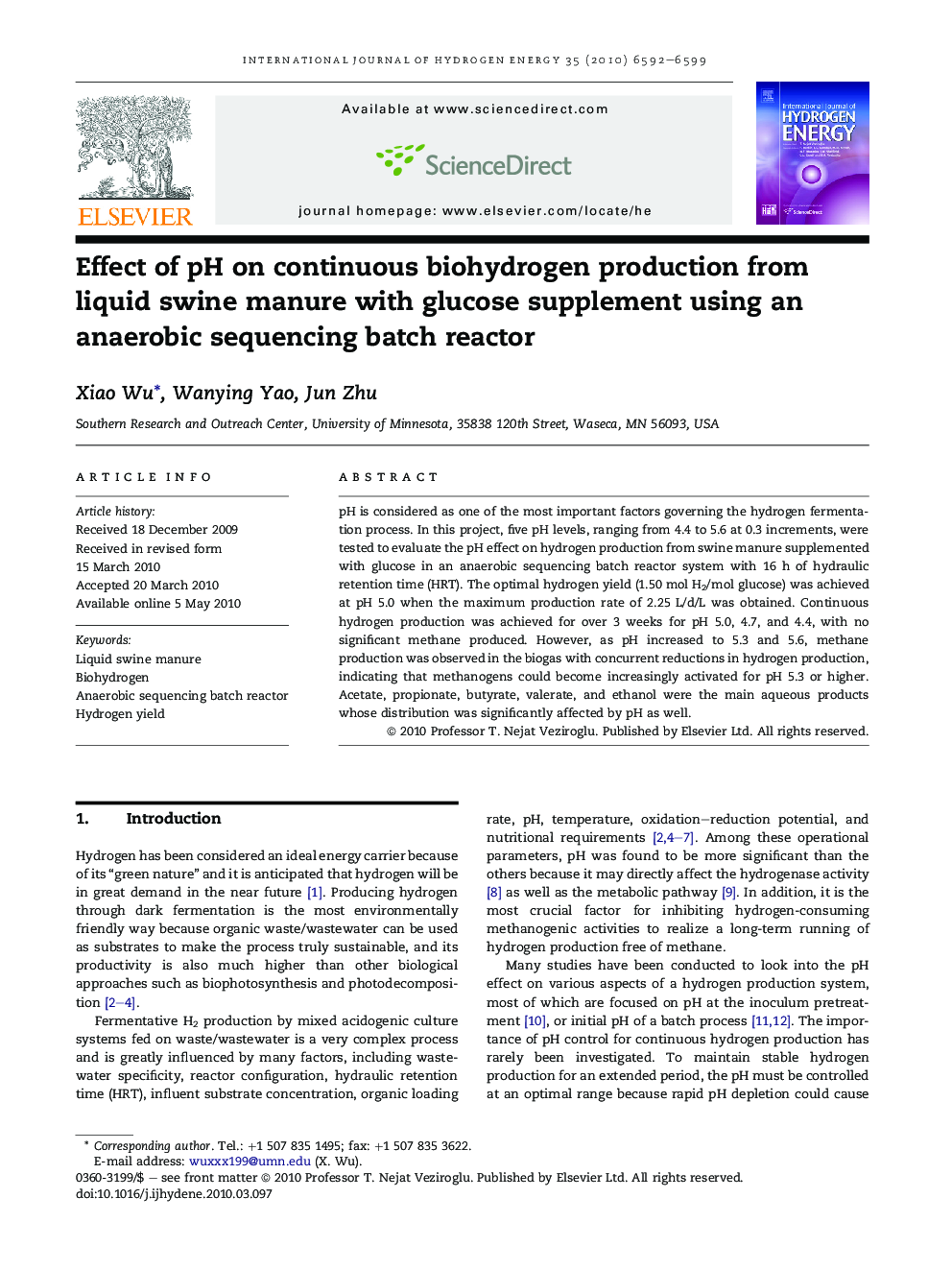| Article ID | Journal | Published Year | Pages | File Type |
|---|---|---|---|---|
| 1272893 | International Journal of Hydrogen Energy | 2010 | 8 Pages |
pH is considered as one of the most important factors governing the hydrogen fermentation process. In this project, five pH levels, ranging from 4.4 to 5.6 at 0.3 increments, were tested to evaluate the pH effect on hydrogen production from swine manure supplemented with glucose in an anaerobic sequencing batch reactor system with 16 h of hydraulic retention time (HRT). The optimal hydrogen yield (1.50 mol H2/mol glucose) was achieved at pH 5.0 when the maximum production rate of 2.25 L/d/L was obtained. Continuous hydrogen production was achieved for over 3 weeks for pH 5.0, 4.7, and 4.4, with no significant methane produced. However, as pH increased to 5.3 and 5.6, methane production was observed in the biogas with concurrent reductions in hydrogen production, indicating that methanogens could become increasingly activated for pH 5.3 or higher. Acetate, propionate, butyrate, valerate, and ethanol were the main aqueous products whose distribution was significantly affected by pH as well.
